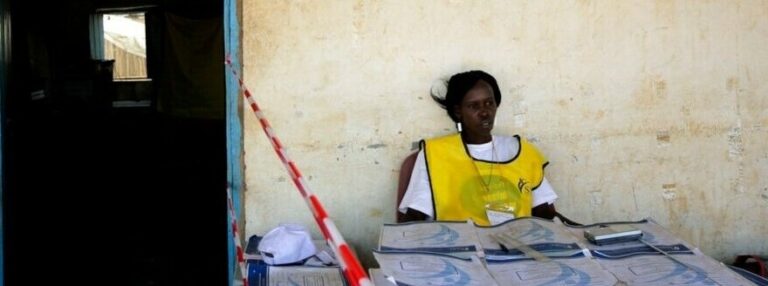The residents of Warrap have said the area would not be ready for an election unless both the national and the state governments take drastic measures.
They raised their concerns on Wednesday, noting that the electoral commission has no capacity to conduct the poll in accordance with the wishes of the people.
Speaking to Radio Tamazuj, Dau Ngor singled out the state electoral office, saying it was in a bad shape to run an election.
“In my opinion, it would not be possible to hold a credible election here in Kuajok today or next year. I don’t even know where the current electoral office is yet the previous premise is dysfunctional,” he said.
“The commission needs financial support from the national government for activities like voter education and the voters’ rights.
“Also, no census has been conducted since 2008 and people only talk of an estimation of the South Sudan population, without specifying the method they used to make the estimate,” he added.
Chon Aher said if activities like voter education were not conducted, there would be doubts about the credibility of any election.
“If the South Sudan leaders were to say the election should be held today or tomorrow, Warrap State would not be ready, as the residents are supposed to know the head of the electoral commission, the members and their activities through the media,” he said
“No voter education was being conducted to help the people make informed choices and the political parties too were not doing their work. Some have not been registered while others and their agendas were unknown to the people,” he added.
An elder, Moses Madot, said Warrap State was unprepared if an election date were announced, saying the electoral office lacked equipment for the exercise.
“There is no office. The one where the 2010 election was conducted has been repossessed by the owner and the local people were not aware of any electoral commission activities,” he said
The State Chairperson for the High Election Committee, Jacob Anei, admitted that his office was still under construction and has no equipment. However, he insisted that they were ready to run an election in the state if announced, citing that the national government would provide vehicles.
“My role is to supervise the electoral officers in the field, and the execution of the rules and regulations that enhance democratic, credible, free and fair election,” he said.
Anei said challenges facing his office cut across South Sudan and that they would be overcome.
The electoral chairman blamed the government for not providing vehicles for conducting voter education.




